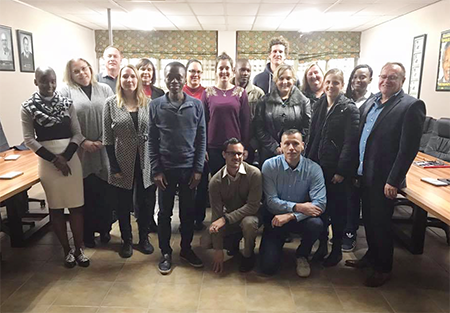Prof Pallesen’s research focuses on sleep and addiction, both topics on which he has published extensively. “Getting enough sleep is very important,” said Prof Pallesen and continued to emphasise its value for the proper functioning of the human memory and learning process.
Research investigating the sleeping patterns of top athletes has shown a positive correlation between increased sleep and overall better athletic performance.
Prof Pallesen said that good sleep comprises two elements: sleep duration and quality of sleep. According to him, teenagers need between eight and 10 hours of sleep every day, while adults need seven to nine hours. Quality sleep entails a deep sleep with rapid eye movement and not too many awakenings or disturbances.
Bad sleeping habits can be associated with an array of health risks. Except for an impairment of school and/or work performance, evidence also suggests that it may lead to mental health issues. A good example is the link between insomnia and depression. If you are chronically sleep deprived, the risk of somatic diseases also increases.
Prof Pallesen explained there are several reasons why people sleep poorly, including specific sleep disorders such as sleep apnoea. With sleep apnoea – a condition that often goes undetected – a person stops breathing during sleep. Symptoms of sleep apnoea include snoring and pauses in breathing, and being overweight increases a person’s risk to develop it.
Another common sleep disorder is insomnia, where a person experiences difficulty in falling asleep or maintaining sleep. This condition is often exacerbated by the sufferer compensating for the lack of sleep in ways that impairs sleep in the long run. Insomnia sufferers would tend to stay in bed for a longer period of time, causing them to associate their bed and bedroom with wakefulness which in turn would hamper sleep.
It is undeniable in the age that we are living in that a link exists between poor sleep and excessive social media use. Prof Pallesen said that especially in the evenings and at night, this is a problem of which the causality works both ways: using social media may impair sleep, but when one is unable to sleep, using social media to cure boredom can induce sleepiness. The light that is emitted from the screen can, according to Prof Pallesen, have an effect on wakefulness and delay the circadian rhythm (24-hour cycle) if one is exposed to it in the evening.
Getting enough good quality sleep seems to be a recipe for optimal functioning. Making the bedroom a place associated with sleep, will enable even the busiest among us to catch enough zzz’s to wake rested the next morning, ready for a productive day.

In the back from left are Prof Marius Stander, Dr Marita Heyns, Elizabeth Bothma, Thembelihle Lobi, Jonathan Klapwijk, Prof Susan Coetzee van Rooy and Innocentia Pitso. In the second row from left are Moratuwa Motsemme, Erika Maree, Dr Laura Roll, Stephanie Nowack, Prof Ansie Fouché, Dr Leoni van der Vaart and Dr Riaan Bothma. In front are Refiloe Digoamaye (standing), Dr Kleinjan Redelinghuys and Prof Ståle Pallesen.
